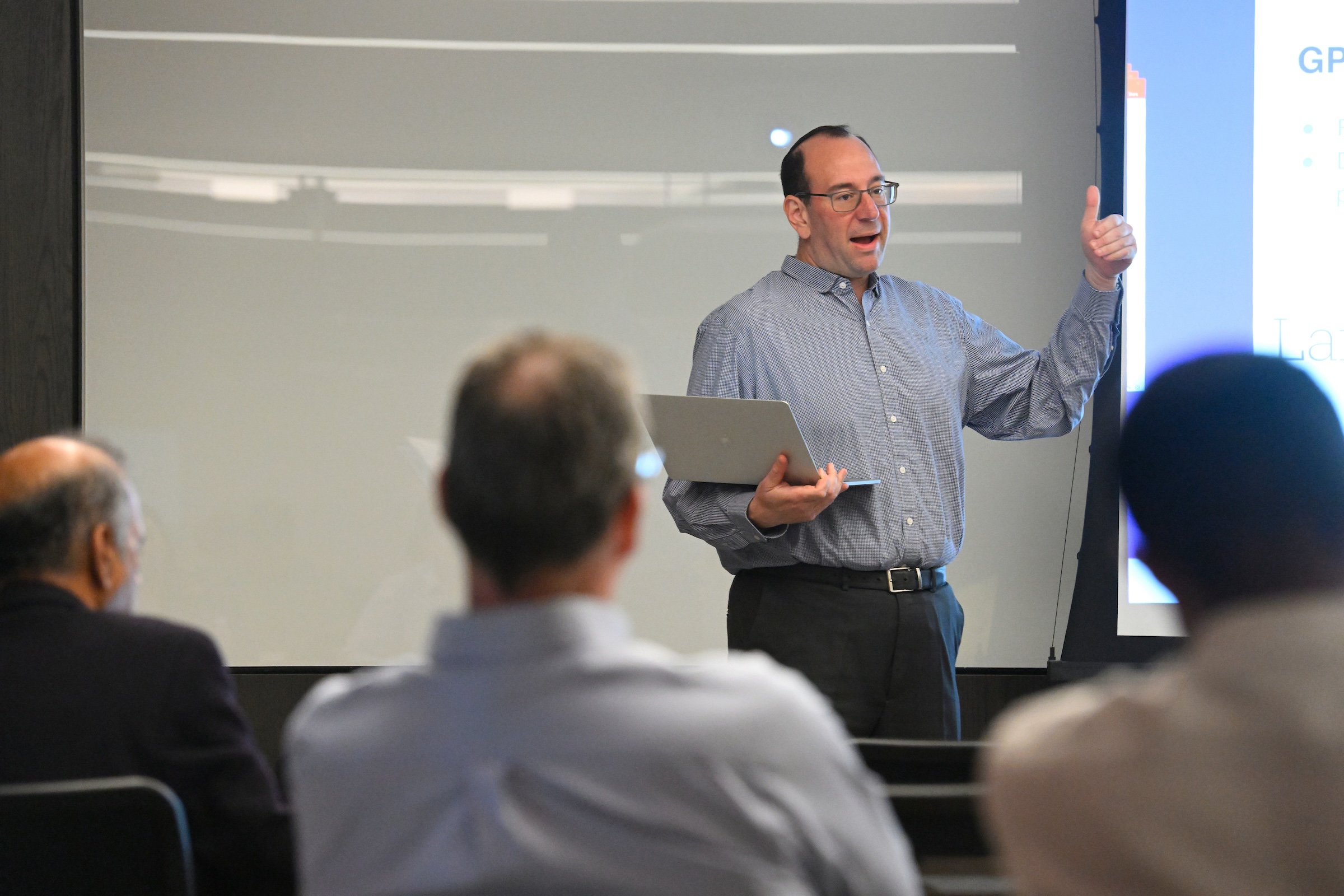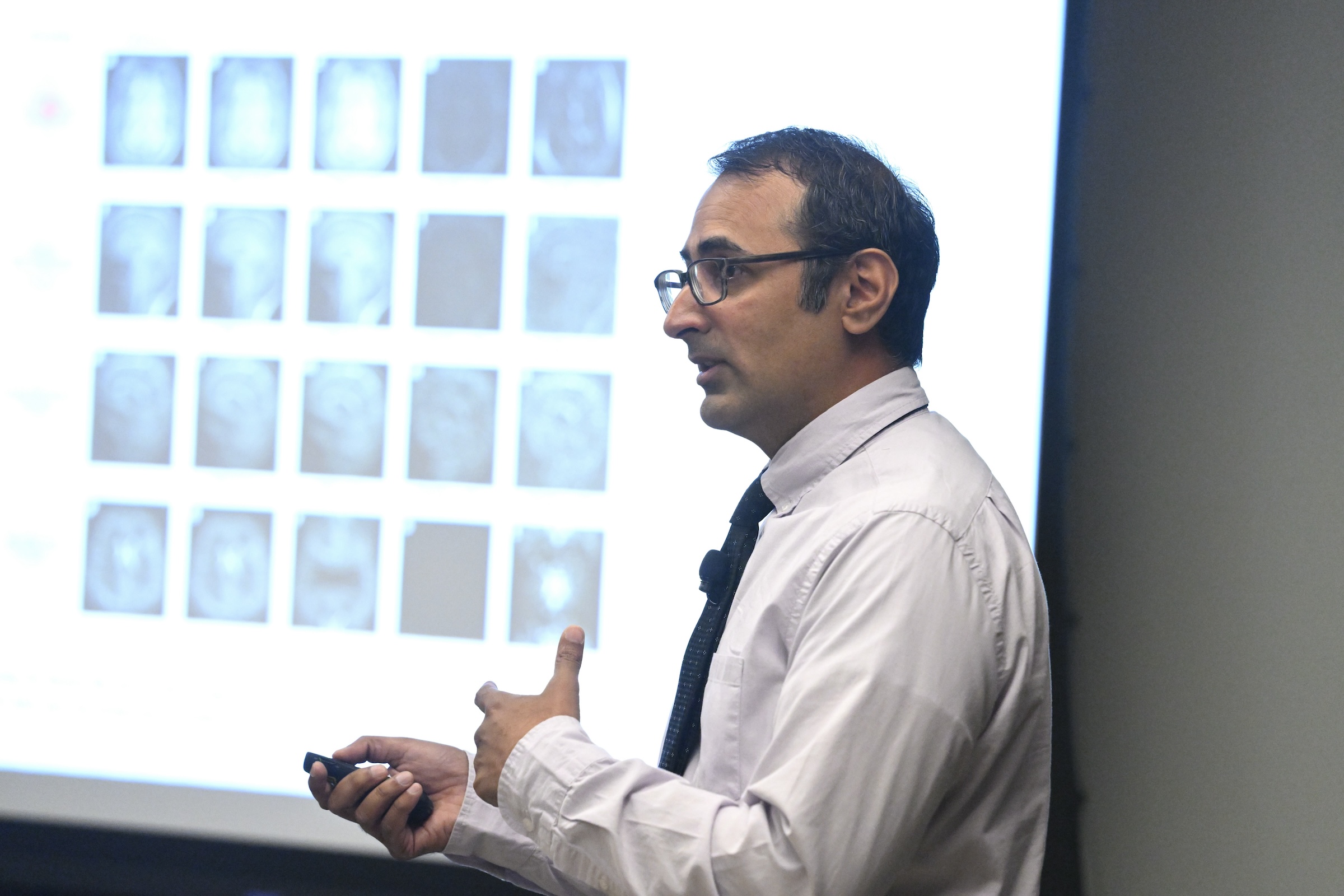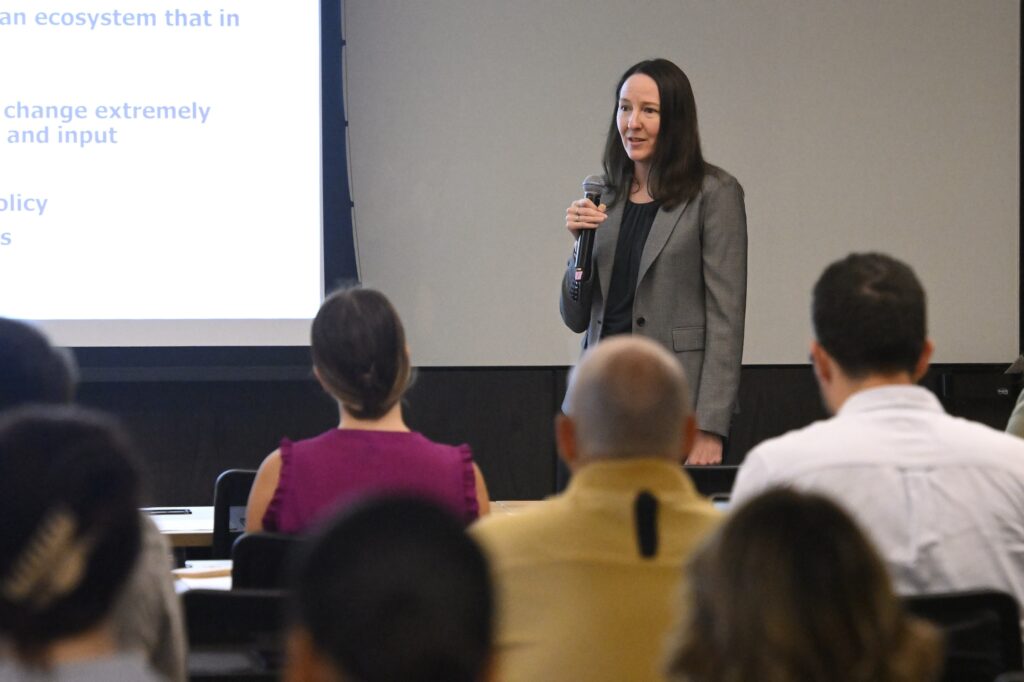As artificial intelligence rapidly transforms numerous aspects of society, federal policymakers face the complex challenge of determining if and how to regulate this technology.
On July 19, the Johns Hopkins Data Science and AI Institute and Johns Hopkins Engineering’s Lifelong Learning, in collaboration with Johns Hopkins Office of Federal Strategy, hosted an information session on AI for congressional staffers at the Johns Hopkins Bloomberg Center in Washington, D.C. The event aimed to provide staffers with a comprehensive understanding of AI’s underlying technology and its diverse applications, as well as its potential risks and rewards.
The session featured presentations from Johns Hopkins AI experts who shared their insights into AI’s applications across diverse sectors, including national security and health care. The event brought together individuals from both major political parties and both houses of Congress.
“Whenever people tell me they’re afraid of AI, I always tell them to think of AI like a computer program,” said speaker Mark Dredze, John C. Malone Professor of Computer Science and interim deputy director at the Johns Hopkins Data Science and AI Institute. “The idea that AI is something that we can’t control—that’s just not true. These are computer programs and technologies that we build, and we decide where and when we use them.”

Mark Dredze presents “AI and Language” at the congressional information session.
Speakers discussed AI’s potential to dramatically change medicine, with medical imaging at the forefront of this revolution. The Food and Drug Administration approved 221 new artificial intelligence and machine learning (AI/ML)-enabled medical devices last year. Overall, 76% of FDA approved medical devices are in the radiology medical domain.
Malone affiliate Haris Sair, an associate professor in the Johns Hopkins Medicine Department of Radiology and Radiological Science and the director of the Division of Neuroradiology, told attendees that new AI/ML-powered technologies have the potential to address part of the nation’s current shortage of radiologists, explaining, “While the radiologist will still be the one to make decisions and give diagnoses, AI can assist radiologists with interpretations of imaging and improving their workflows.”

Haris Sair presents “AI for Radiology.”
Top Image Caption: Alexis Battle, director of the Malone Center for Engineering in Healthcare and interim co-director of the Data Science and AI Institute, gives an introduction at the AI Essentials for Congressional Staffers Information Session.
